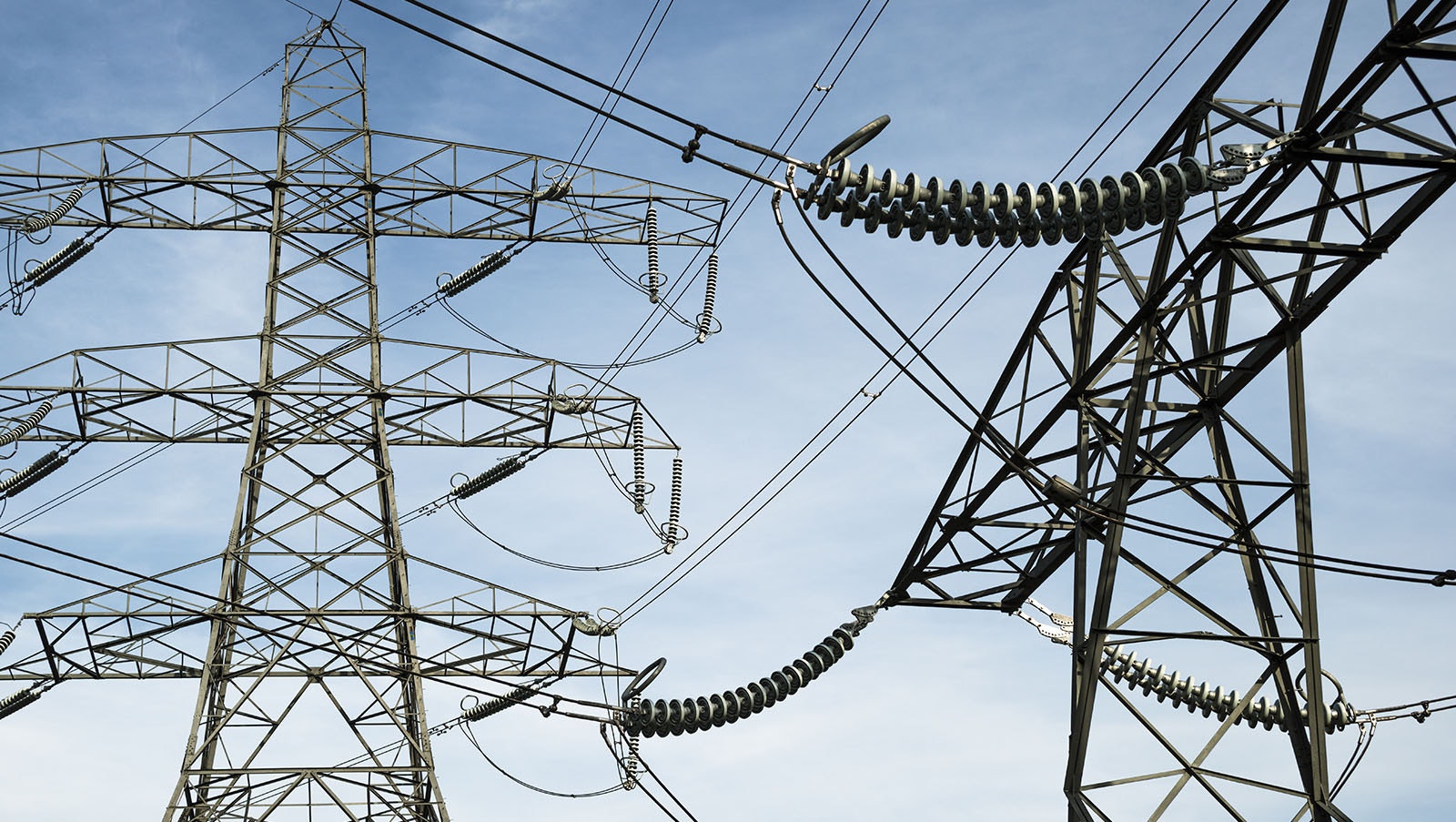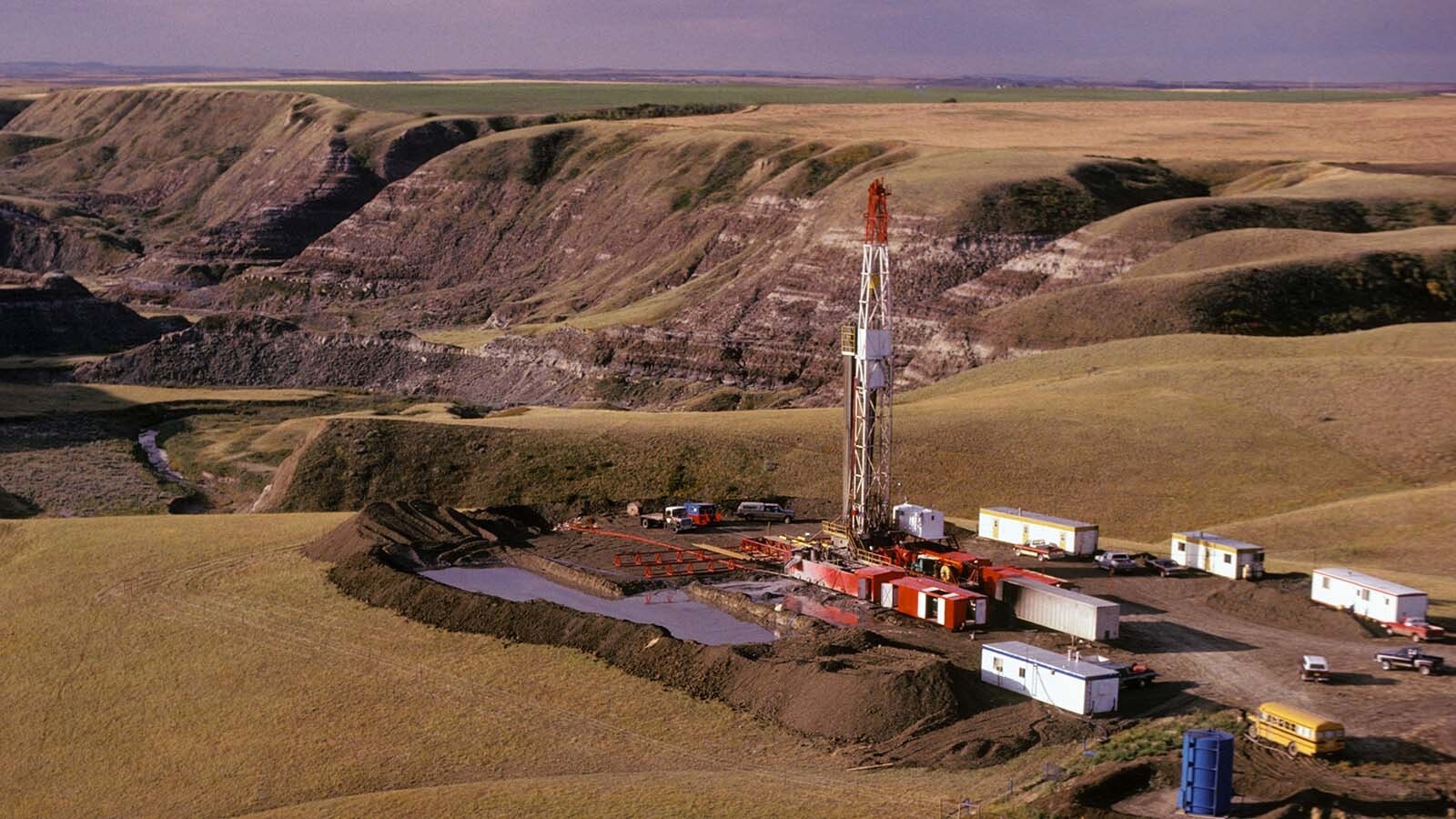The Wyoming Minerals, Business, and Economic Development Committee on Thursday discussed a pair of draft bills exploring deregulation models that could help provide more protection for Cowboy State electricity providers.
Islands of Deregulation
The first bill would create industrial power zones that would be exempt from rate regulation and other requirements that public utilities must follow. The Wyoming Public Service Commission would review proposals for such zones to determine their impacts, but once approved, public utility regulation wouldn’t apply within the zone.
Sen. Chris Rothfuss, D-Laramie, has been an advocate for the zones to accommodate large-scale projects that require large amounts of electricity, such as cryptocurrency mining operations.
Rothfuss said the draft bill is a narrow means to create “islands of deregulation” rather than trying to do a comprehensive statewide deregulation policy.
“We would not have the challenges that we faced over the years, where the one-size-fits-all Monopoly has not always worked for particularly large power projects,” Rothfuss explained.
The other bill would allow a person to enter into direct service agreements, meaning an agreement to supply electricity with any consumer, so long as the delivering of that power doesn’t use transmission lines regulated by the PSC and the entity selling the power is a public utility.
So, for example, someone could build a solar plant and sell the power directly to a single company, which now is prohibited in Wyoming.
Working Pretty Well
Tony Clark, senior advisor at Wilkinson Barker Knauer LLP, was asked to testify on the history of utility deregulation in the United States. Clark is a former North Dakota legislator and former chair of that state’s Public Service Commission. He also served on the Federal Energy Regulatory Commission for nearly five years.
Clark called deregulation “a high-risk, low-reward proposition,” and Wyoming already has some of the lowest rates in the nation.
“Things are working pretty well. It may not make sense to fix something that isn’t broken,” he said.
During his presentation, he showed a slide of the states with the highest electricity costs. Of the top 10, nine are deregulated.
Apples to Oranges
Noting that many of those top-10 states classified as deregulation states are in the Northeast U.S., Rep. Cyrus Western, R-Sheridan, asked if Clark was making an “apples and oranges comparison.”
Those states, Western said, have very stringent clean energy standards that drive up energy costs. Western asked if the impact of deregulation was more nuanced than just a matter of whether it does or doesn’t work.
Clark agreed there’s other factors impacting Northeast power costs, such as those states’ opposition to pipelines, which has limited their access to natural gas. However, he said, they were high-cost states prior to deregulation and saw no decrease in costs after deregulation was enacted. Likewise, academic studies have not found deregulation decreases costs.
Texas Experience
Clark also used the experience of Texas, which has a grid separate from the rest of the county and areas that are deregulated and areas that aren’t. He said the rates in the deregulated parts are higher than the areas that are regulated.
Western said a concern that brought up the issue of deregulation is large-scale projects, and if those projects are better served by a more flexible regulatory environment. He asked if larger energy consumers were located in deregulated or regulated portions of Texas.
Clark said that much of the state’s industrial load is on the Gulf Coast, which is split between deregulated and regulated zones. He said anecdotally, with natural gas prices so high, he’d heard that companies in the regulated areas were better off because the energy cost was more predictable.
‘Unmitigated Disaster’
Clark provided a few case studies in other states that had at one time or another flirted with deregulation. In California, they have a form of direct retail access, which allows certain areas, such as cities or counties, to directly contract energy supplies. Clark argued this resulted in a lack of investment in on-demand power generation, such as nuclear and coal-fired plants, and an over-reliance on renewables.
He said deregulation also was what caused a lack of investment in on-demand generation in Texas.
He presented Montana’s experience with deregulation, which Clark said caused power prices to spike. Montana re-regulated in 2007, and the governor at the time called deregulation “an unmitigated disaster.”
Clark said traditional regulation models allow lawmakers to keep rates low and maintain grid reliability.
Problematic Thesis?
Besides Western, Rep. Chuck Gray, R-Casper, also questioned Clark’s analysis. He pointed out that a lot of the states that have deregulation are in parts of the country where median incomes are the highest, meaning everything tends to be more expensive.
“I think that’s the problem with your thesis,” Gray said.
Clark pointed to low-cost Montana and its experience with deregulation.
He also said that with the move toward greater reliance on wind and solar on the grid, a regulated state allows for a better planning process. So, if residents feel they’re going to be short on capacity, they can work with or order utilities to build and retain more on-demand generation.
“Once you deregulate and you unbundle those utilities, and you make generators essentially merchant, and they’re dependent on a wholesale market, which increasingly is dysfunctional — I think that’s where you have the bigger problem,” Clark said.





